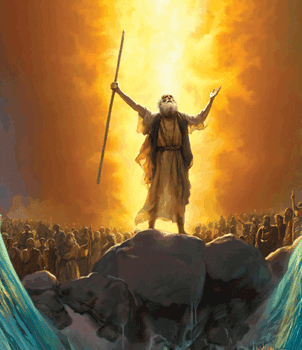"If you believe, you will receive whatever you ask for in prayer" (Matthew 21:22, NIV).
Tag someone in need of prayer, and kindly share your prayer requests here:
https://wkf.ms/3DBuapQ Source: https://www.youtube.com/watch?v=jrLS33bj-n4
Editorial: My Calves and the Future of Adventist Journalism

Summer is here, and at Adventist Today, we’ve just wrapped up an intense 10 days of reporting on the General Conference Session in St. Louis—and we hope we did you proud. This summer also brings the slightly terrifying realization that I’ll be attempting a marathon most days from Pisa to Monte Carlo—over 220 miles, starting […] Source: https://atoday.org/editorial-my-calves-and-the-future-of-adventist-journalism/
SdS – Il libro dell’Esodo – Lezione 04
LE PIAGHE.
Approfondimento della lezione 04 del 3° trimestre 2025 a cura di Mariarosa Cavalieri, Roberta Vittori e Nino Plano. 📩 Trovi i materiali utili qui:
🔗 uicca.org/3-trimestre-2025-lezione-04
🔗 https://uicca.org/nocciolo-3-trimestre-2025
🔗 https://uicca.org/edizioni-adv-3-trimestre-2025
🔗 https://ottopermilleavventisti.it/ Source: https://www.youtube.com/watch?v=cCW6Ws5CEDw
4: The Plagues — Singing with Inspiration
Exodus points us to a wonderful conclusion with the Israelites being bound for the Promised Land, hence our theme hymn for the quarter being
We Are Bound For The Promised Land – Hymn 620.
Such a sadness in the book of Exodus to see that the heart of Pharaoh continues to grow harder and harder towards God and His people. It is a pity that Pharaoh did not
Hark! The Voice of Jesus (and God)
Calling – Hymn 359, just as God called Moses, and then Aaron, to step forward.
We are reminded on Sunday that “the upcoming battles were going to be between the living God and the Egyptian ‘gods’ “, with Moses needing to see
Hymn 264 – O For That Flame Of Living Fire (verse 4).
“Pharoah had his free will—he could choose for or against God”. We have that choice today as well, and I say
Lord, I Have Made Thy Word My Choice – Hymn 273.
The idolatry of the Egyptian people had wiped out God as The Creator and instead worshipped all those things God had created. May we choose to believe and trust and God
For Beauty Of Meadows.- Hymn 640.
Please continue to search the scriptures this week to be blessed, and to bless others.
To learn unknown hymns, you will find the accompaniment music for each one at: https://sdahymnals.com/Hymnal/
Another great resource is for when there is a hymn you wish to sing but can’t find it in your hymnal. Go to https://www.sdahymnal.org/Search and in the search bar type a special word in that is in the hymn. I am sure you will be amazed at the help you will be given.
2 Timothy 2:15 KJV – “Study to shew thyself approved unto God, a workman that needeth not to be ashamed, rightly dividing the word of truth.”
 (0)
(0)Source: https://ssnet.org/blog/4-the-plagues-singing-with-inspiration/
4: The Plagues — Teaching Plan
Key Thought : This week we encounter the God of miracles and the signs and wonders He performs, as well as the plagues as Divine judgment upon Egypt,
July 26, 2025
1. Have a volunteer read Exodus 7:3,13,14,22.
- Ask class members to share a short thought on what the most important point is in this passage.
- What lessons are here in the first confrontation between the God of the Hebrews and the gods of Egypt?

- Personal Application: What freewill choices are you going to make this week? If you know what the right choice is, how can you prepare to make it? Share your thoughts.
- Case Study: One of your relatives states, “Doesn’t the Bible say God hardened Pharoah’s heart? Does this mean that God causes people to do either the right or the wrong thing in their lives? That He predestines people to be saved or to be lost, to do good or evil?” How would you respond to your relative?
2. Have a volunteer read Exodus 7:14-8:19.
- Ask class members to share a thought on what the most important point in this text is.
- What happened in these plagues?
- Personal Application: Is there a danger in our lives by rejecting God’s Spirit continually and making things worse in our lives? Share your thoughts.
- Case Study: One of your friends states, “What is so attractive about idol worship? Why was it so difficult for the Egyptians to break from idolatry, even after they saw the devastation it brought upon them?” How would you respond to your friend?
3. Have a volunteer read Exodus 8:27-9:12
- Ask class members to share a short thought on what the most important point in this text is.
- What does this account teach about however great may be the manifestations of God’s power, mankind still have the free will to reject Him?
- Personal Application: Pharoah had rational evidence to make a right choice. It was a heart problem. What does this tell us about we must guard our hearts? Share your thoughts.
- Case Study: One of your neighbors states: “What is an idol> How do we make our own gods and bow doen before them? Why does God stand so vehemently against iodolatry?” How would you respond to your neighbor?
4. Have a volunteer read Exodus 9:13-10:29.
- Ask class members to share a thought on what the most important point in this text is.
- How successful are these plagues in getting Pharoah to change his mind?
- Personal Application: What is it in our hearts that causes us to stubbornly refuse all of God’s promptings to repent and follow Him? Share your thoughts.
- Case Study: Think of one person who needs to hear a message from this week’s lesson. Tell the class what you plan to do this week to share with them.
(Truth that is not lived, that is not imparted, loses its life-giving power, its healing virtue. Its blessings can be retained only as it is shared. ”Ministry of Healing, p. 148).
 (0)
(0)- « Previous Page
- 1
- …
- 559
- 560
- 561
- 562
- 563
- …
- 8260
- Next Page »
